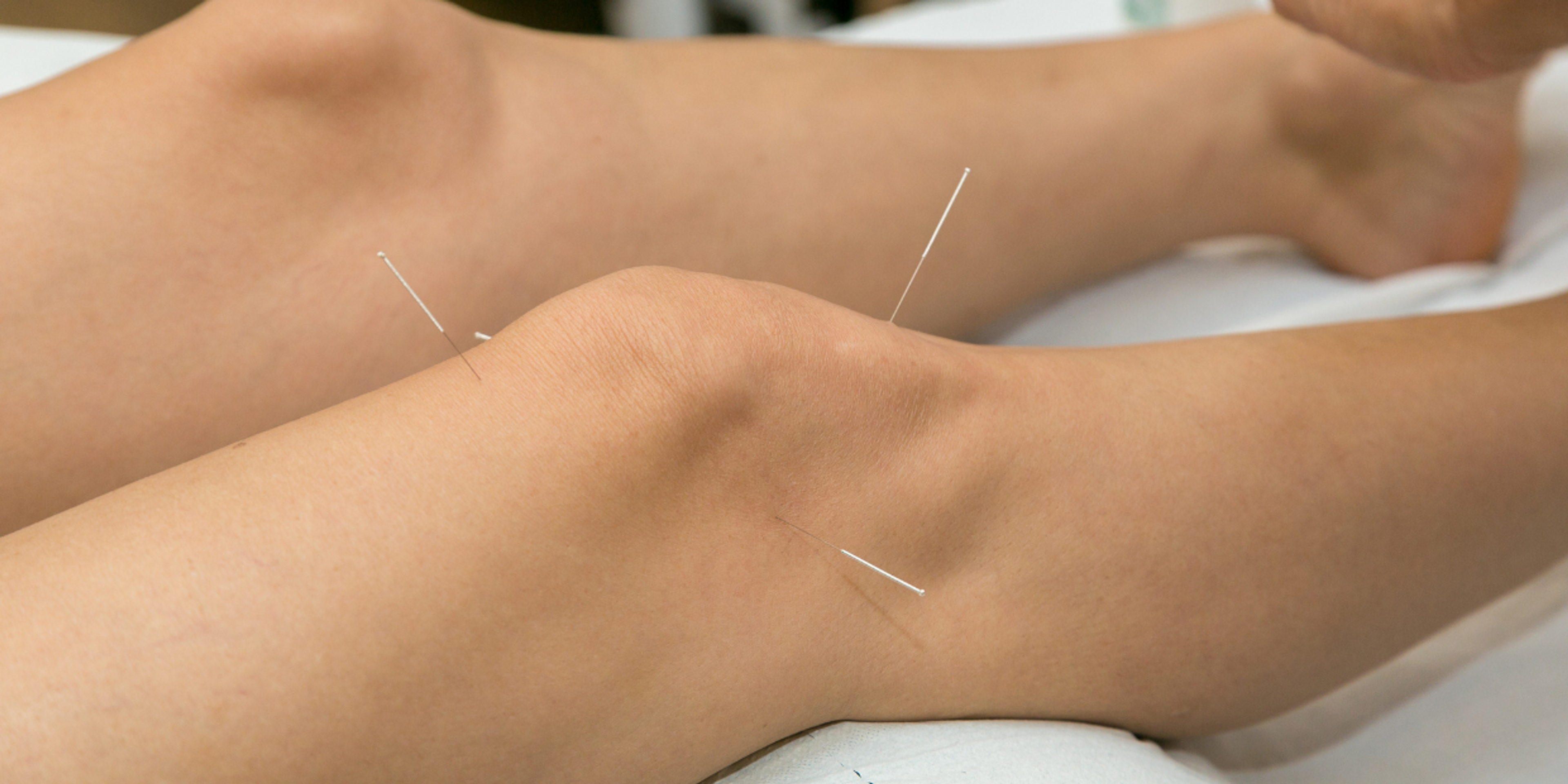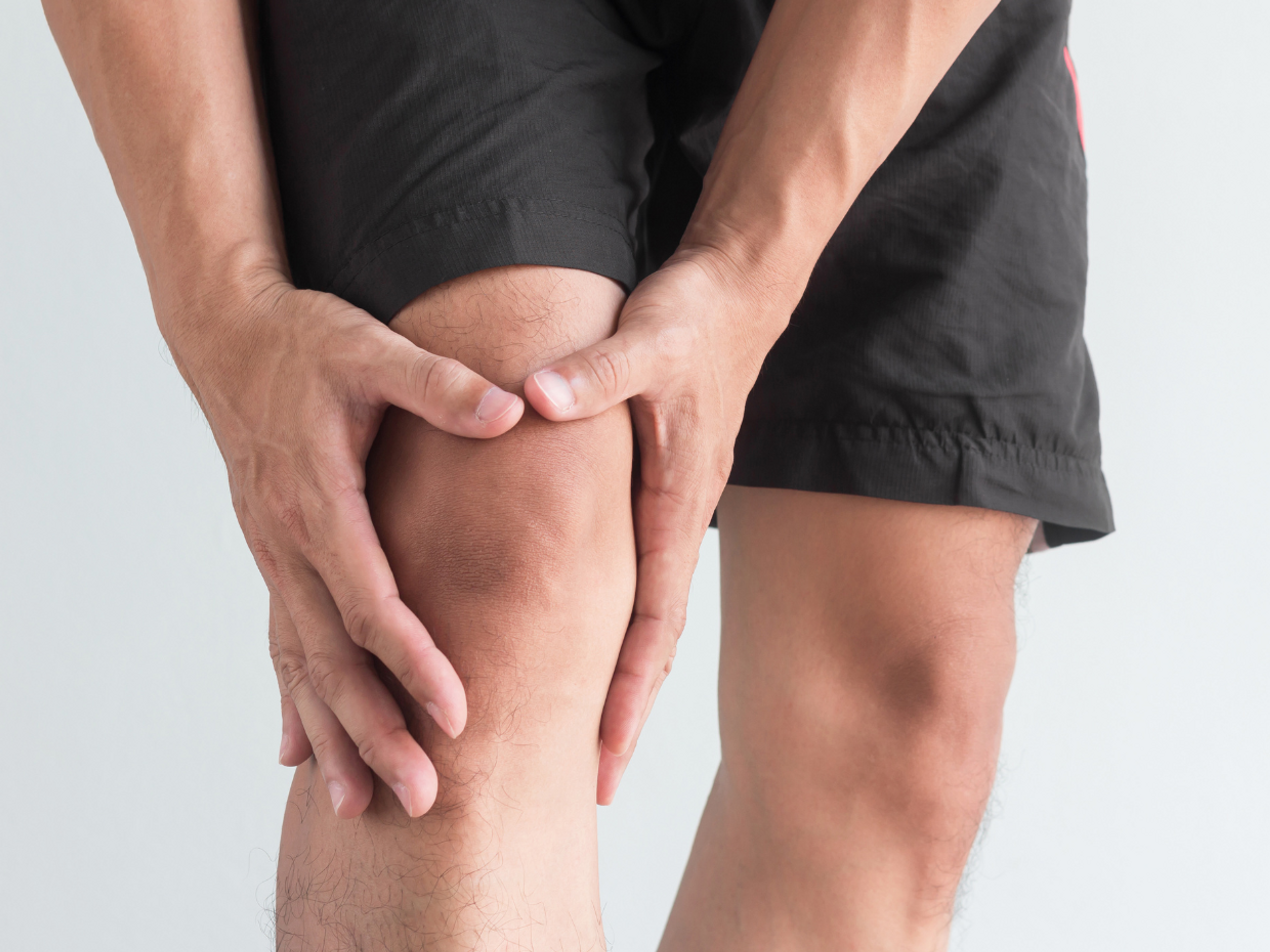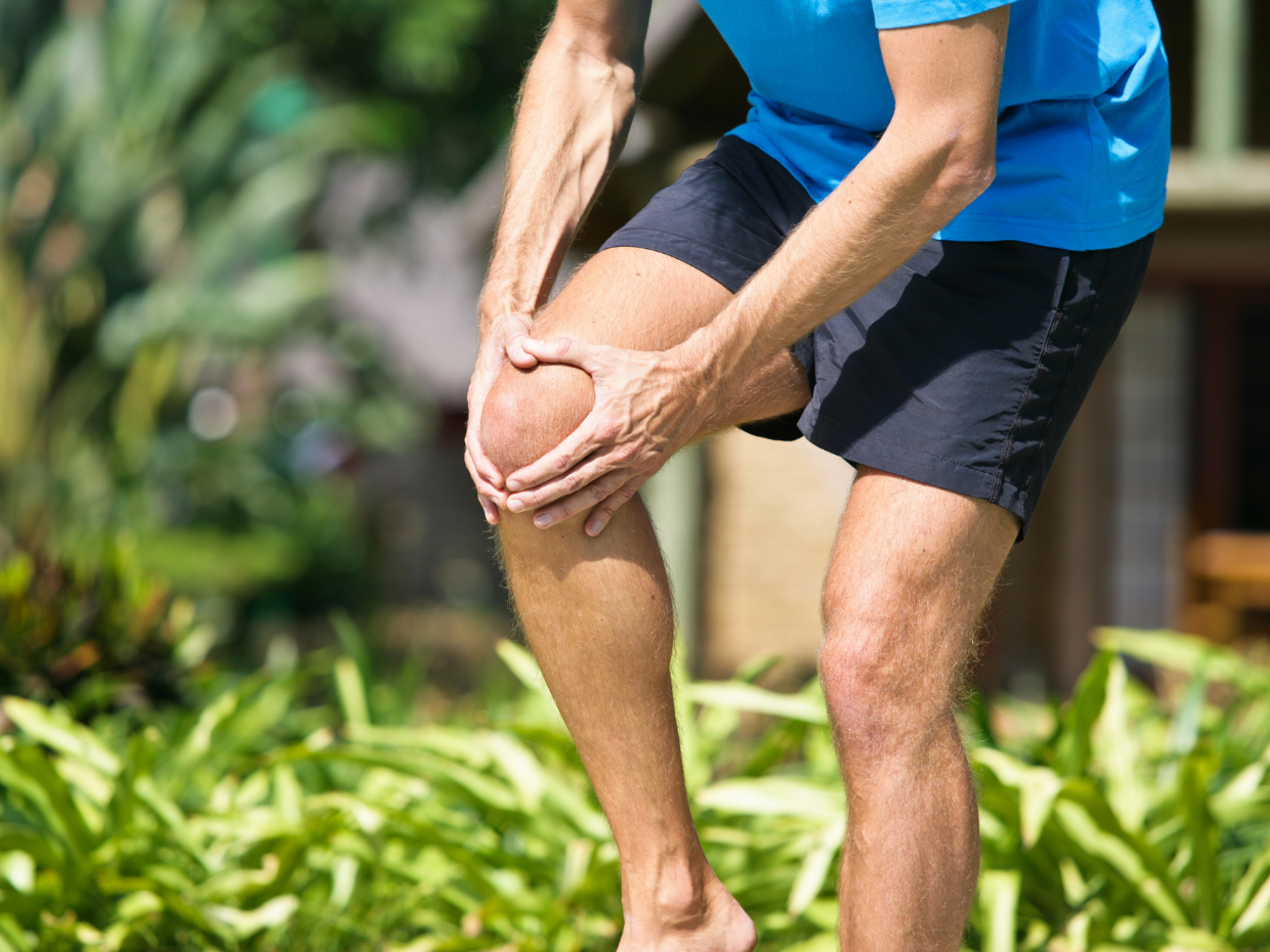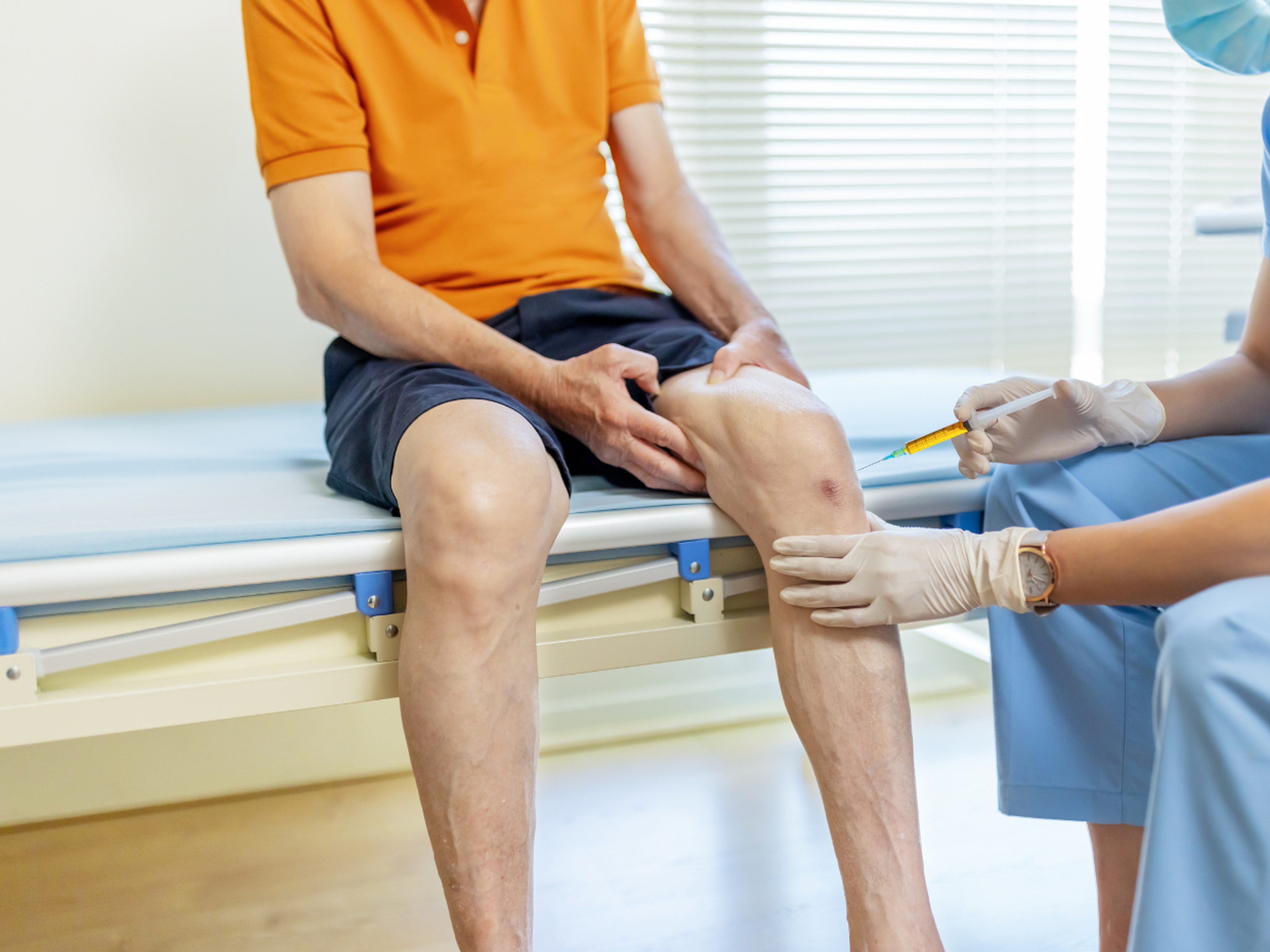Acupuncture for meniscus tears: A natural way to support your rehabilitation
How does acupuncture help for meniscal tears?
Acupuncture research is limited because it’s difficult to measure its effects. The lack of high-quality evidence means we can’t draw reliable conclusions yet, and we can’t tell how well acupuncture works for treating meniscal tears.
Many people report finding acupuncture helpful for various symptoms and health conditions despite this.
These include chronic pain, inflammation, arthritis and other musculoskeletal problems. Some research suggests that acupuncture may speed up post-operative recovery times too.
So, what is acupuncture, and can it help you recover from your meniscus injury?
What is acupuncture?
Acupuncture has been used for thousands of years to treat various health disorders. It involves inserting thin needles superficially into the skin at specific points on your body. It is an essential part of traditional Chinese medicine, and Western medicine uses it in particular clinical fields.
Acupuncture in Western medicine vs Chinese medicine
Chinese medicine
Qi (‘chee’) is known as your vital life force or energy in Chinese medicine. This energy is said to flow in and around your body along unique energy pathways called meridians. For optimal health, the flow of Qi must be uninterrupted along these channels.
Acupuncture in Chinese medicine aims to correct the flow of energy in your whole body and restore (and maintain) physical and mental health and wellbeing through this.
Western medicine
In Western medicine, the same needles are used but for different reasons.
Acupuncture used in Western medicine focuses on stimulating the cells and tissues in the needled area. For example, it is thought that the needles stimulate your natural pain relief, local immune responses and sensory nerves that block pain signals to your brain.
Western acupuncture aims to improve blood flow and reduce pain and inflammation in a localized area.
What does the research say?
Knee pain, osteoarthritis and meniscus tears
Most knee acupuncture research shows how acupuncture affects knee pain from osteoarthritis (OA) in particular.
OA is a painful degenerative condition that involves the bony surfaces and cartilage of a joint and is usually due to wear and tear.
Similar to OA, the symptoms of a meniscus tear usually include a stiff, swollen and painful knee joint. With more pain after activity and discomfort, tightness and weakness in the surrounding soft tissues.
With western medical journals publishing more and more studies supporting acupuncture and the similarities (mentioned above) between meniscal tear and knee OA symptoms, more doctors are prescribing acupuncture as part of a larger holistic treatment plan in patients with mild to moderate meniscus tears.
Although a meniscus tear is not necessarily a chronic pain condition, its similarities to OA means it may respond well if treated similarly.
New approaches to treatment emerging
A conservative approach to pain treatment is emerging, backed up with solid evidence and guiding top-level healthcare institutions’ pain management protocols.
Acupuncture is one of the modalities included in this conservative approach.
NICE (The National Institute for health and Care Excellence) recommends exercise, acupuncture, and manual therapy before any opioid medications to treat ongoing pain in the UK.
The National Centre for Complementary and Integrative Health (NCCIH) backs acupuncture for several common pain conditions in the US. In addition, the World Health Organization (WHO) lists medical conditions that acupuncture may help treat, knee pain included.
Here’s a little look at some of the research about using acupuncture for knee pain and meniscus tears:
- Acupuncture can substantially reduce pain, increase mobility, and improve quality of life.
- It showed similar results to physiotherapy for pain, function, and quality of life as a standalone treatment.
- When combined with medication, acupuncture has a better therapeutic effect in the early stages of knee OA than medication alone.
- Blocking pain signals helps reduce pain and eases the tension associated with many musculoskeletal conditions, including knee pain.
- Acupuncture was better than morphine in reducing acute pain (92% vs 78%), worked faster (20 minutes vs 35 minutes), and far fewer people had adverse effects (4 vs 85) than with morphine.
- Acupuncture may positively impact cartilage, hinting that it may play a role in promoting cartilage repair.
If you are interested in reading more of the research, this website offers a good amount of insight into acupuncture studies.
When reviewing acupuncture research, it’s evident that many studies report positive therapeutic effects of acupuncture. Acupuncture is said to cause physiological changes in the cells and tissues. Scientists predict these changes cause a cascade of other physiological events in the body.
What does the resarch say?
Further studies are necessary. And, as medical technology improves, hopefully, we will see more robust evidence of the positive effects of acupuncture.
Acupuncture should be part of your bigger picture
Our article about meniscus tears explained that symptomatic treatment helps in the short term. But tackling the root cause of injury is the best solution for healing the structures in the knee and preventing further or future injury.
Acupuncture may help reduce pain and inflammation and help with healing knee cartilage. Still, it cannot replace a high-quality rehabilitation program that addresses the underlying causes of your meniscus tear or knee pain.
The best way to do this is with a structured strengthening and rehabilitation program that calms inflammation, supports and realigns your body and reduces the strain on your knees.
The Exakt Health App contains an evidence-based exercise plan for meniscus tears to support your recovery. It offers personalized guidance and evidence-based tips for smoothly and effectively managing meniscus tear. You can start using it at any stage of your recovery, and the app will adjust to your current condition, helping you progress towards a full return to sports.
Acupuncture treatment sessions
How long does it take for acupuncture to work?
Every person is different, but most people notice improvements after two or three sessions. With regular acupuncture sessions, many people report less pain and an overall sense of wellness in both psychological and physical health.
Sessions may last anywhere from a few minutes up to 30 minutes or longer per treatment session, depending on your needs and your practitioner’s protocols.
How many sessions do you need?
Scientists agree that acupuncture reduces knee pain, but they haven’t decided on a universally accepted treatment frequency. Most clinical trials have only used acupuncture twice per week. In contrast, Chinese clinical practices usually include three to five sessions per week.
Most acupuncturists will work according to your needs. They will assess you and determine the best frequency to give you the most successful outcome from your treatment.
Most common points used in knee pain acupuncture
ST36, ST35, SP10, EX-LE5, EX-LE2 are the most commonly used points in knee pain treatment. However, there are many points, as shown in the image below.
Dry needling vs acupuncture
Dry needling uses the same type of needle but doesn’t focus on ‘acupoints’ or energy meridians like acupuncture. Instead of releasing myofascial trigger points, it releases muscle tension and increases circulation.
Risks and side effects
Acupuncture is safe when done by a trained and licensed professional who is competent and uses sterile needles.
The most common side effects of acupuncture are tenderness or soreness at the needle insertion sites, bruising, or slight bleeding. In addition, dizziness, fainting, increased pain and nausea are adverse effects but are much less frequent.
Contraindications
You should tell your acupuncturist if:
- You take blood-thinning medications or have a bleeding disorder (acupuncture increases blood flow, so it could make you bleed).
- You’re pregnant or trying to become pregnant (specific points can stimulate labor).
- You have a pacemaker (you should not have electroacupuncture).
Finding an acupuncture practitioner
Regulation
In many countries, acupuncture is unregulated and not protected by a professional association. Therefore, anyone can claim to be an acupuncturist there.
Different types of acupuncture and specialities
There are different types of acupuncture available. In addition, many acupuncturists have particular speciality areas. And this can make it challenging to choose where to go.
Whether you choose medical acupuncture, dry needling, or traditional acupuncture methods, it’s essential to go to someone reputable who is held accountable to professional standards.
Where to start
It would be best to start treating your meniscus tear by finding someone specially trained in treating pain in muscle and joint disorders and registered with a reputable acupuncture association in your country.
Getting recommendations from your doctor or searching acupuncture association websites for registered practitioners will help you find someone reliable in your area.
The 3 main reasons
However, as with all holistic therapies, not everyone will respond equally well to acupuncture. If it works for you, keep going with it. If not, try something else to support your rehab program.



